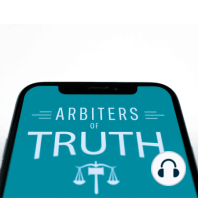45 min listen

How the Press and the Platforms Handled the Hunter Biden Laptop
How the Press and the Platforms Handled the Hunter Biden Laptop
ratings:
Length:
60 minutes
Released:
Apr 7, 2022
Format:
Podcast episode
Description
We’re taking a look back at one of the stranger stories about social media platforms and the role of the press in the last presidential election. In the weeks before the 2020 election, the New York Post published an “October Surprise”: a set of stories on the business and personal life of Hunter Biden, the son of Democratic presidential candidate Joe Biden, based on emails contained on a mysterious laptop. A great deal was questionable about the Post’s reporting, including to what extent the emails in question were real and how the tabloid had obtained them in the first place. The mainstream press was far more circumspect in reporting out the story—and meanwhile, Twitter and Facebook sharply restricted circulation of the Post’s stories on their platforms. It’s a year and half later. And the Washington Post just published a lengthy report verifying the authenticity of some of the emails on the mysterious laptop—though a lot still remains unclear about the incident. In light of this news, how should we understand Facebook and Twitter’s actions in 2020? Washington Post technology reporter Will Oremus weighed in on this question in his own reflection for the paper. This week on Arbiters of Truth, our series on the online information ecosystem, Evelyn Douek and Quinta Jurecic asked him on the show to discuss the story. Did the social media platforms go too far in limiting access to the New York Post’s reporting? How did the mainstream press deal with the incident? What have we learned from the failures of how the press and social media responded to information operations around the 2016 election, and what can we learn from how they behaved differently in 2020? Our GDPR privacy policy was updated on August 8, 2022. Visit acast.com/privacy for more information.
Released:
Apr 7, 2022
Format:
Podcast episode
Titles in the series (100)
Gabrielle Lim on the Life and Death of Malaysia's Anti-Fake News Act by Arbiters of Truth